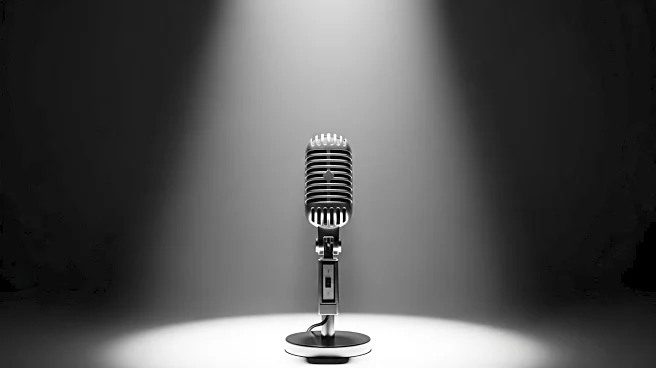What's Happening?
Keira Knightley has publicly responded to a fan boycott of her involvement in the new 'Harry Potter' audiobooks. The boycott stems from author J.K. Rowling's controversial remarks about transgender individuals. Knightley, who voices Professor Dolores Umbridge in the audiobooks, expressed her unawareness of the boycott and apologized, stating, 'I am very sorry.' Despite her apology, some fans criticized her response as insincere due to her laughter during the statement. The audiobooks, produced by Pottermore Publishing and Audible, are set to release 'Harry Potter and the Sorcerer’s Stone' on November 4. Rowling, who has been criticized for her comments since 2020, is not involved in the production of these audiobooks.
Why It's Important?
The controversy surrounding J.K. Rowling's remarks has significant implications for the 'Harry Potter' franchise and its associated media. Knightley's involvement in the audiobooks highlights the ongoing tension between the franchise's commercial interests and the social values of its fanbase. The backlash against Rowling's comments has led to public statements from 'Harry Potter' actors like Daniel Radcliffe and Emma Watson, who have defended transgender rights. This situation underscores the broader cultural shift towards inclusivity and the challenges faced by public figures in navigating these issues. The boycott reflects the power of consumer activism in influencing media and entertainment industries.
What's Next?
As the release date for the audiobooks approaches, it remains to be seen how the boycott will impact sales and public reception. Knightley's response may prompt further dialogue among fans and stakeholders about the intersection of art, commerce, and social responsibility. The controversy could lead to increased scrutiny of celebrity endorsements and their alignment with public values. Additionally, the situation may influence future casting and production decisions within the 'Harry Potter' franchise and similar projects.
Beyond the Headlines
The boycott against Knightley’s involvement in the audiobooks raises questions about the ethical responsibilities of artists and entertainers in choosing projects. It also highlights the potential long-term impact of public figures' statements on their careers and associated brands. The situation reflects broader societal debates about freedom of expression and the consequences of controversial opinions in the digital age.










